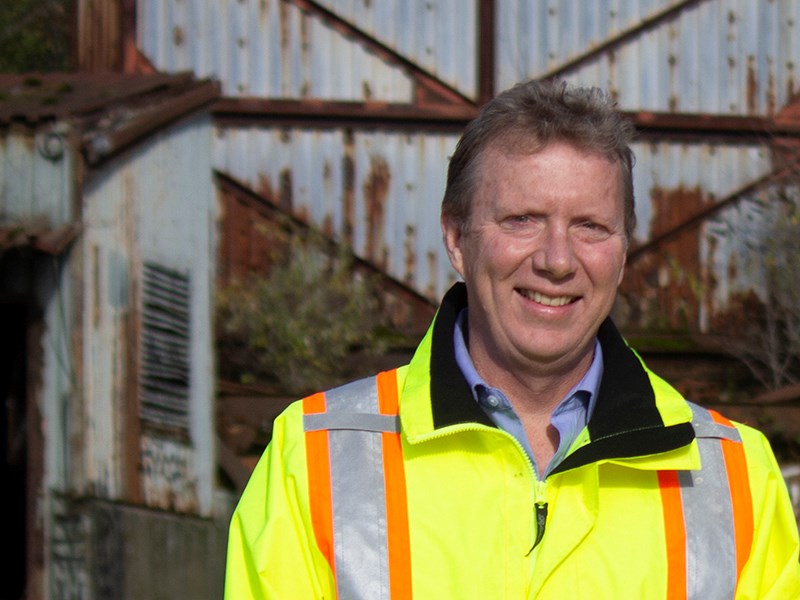While producers of materials that end up in recycling have a responsibility for residential recyclables collected in Powell River, there is question about where industrial, commercial and institutional (ICI) collections will end up.
The disposal of recyclables is in uncertainty right now due to Chinese policy. Mike Wall, qathet Regional District manager of asset management and strategic initiatives, said solid waste and recycling is big news throughout North America at the moment. The reason, primarily, is because of the Chinese National Sword policy, which is working toward a total ban on importing foreign recyclables and wastes into China.
“This year has seen the policy implementation of very strict limits on contamination, with a complete ban on all recyclable material coming in 2020,” said Wall.
He added that qathet Regional District is fortunate to have signed onto the Recycle BC extended producer responsibility (EPR) program in 2014 that included packaging and paper products (PPP) collection at its six recycling depots across the region, including the Town Centre Recycling Depot behind Rona, within City of Powell River.
“British Columbia is known across Canada and North America as a leader in EPR,” said Wall. “Extended producer responsibility is an environmental policy approach in which a producer's responsibility for a product is extended to the post-consumer stage of the product's life cycle.”
This could include physical and/or financial responsibility for the products.
Wall said that while the rest of North America is in turmoil with what to do with all of its collected recycling, BC is doing all right, although further improvement could be made.
“The qathet Regional District is in the process of communicating to the minister of environment and climate change strategy with regard to a gap in the PPP EPR program that does not allow Industrial Commercial or Institutional (ICI) PPP materials,” said Wall. “Essentially, these are exactly the same materials allowed in the program from the residential sector, but because they were collected or dropped off from an event, school, office, campground, restaurant or other ICI sector facility, the recycling is not allowed in the program. This gap is leaving recyclable material potentially destined for landfill with the fallout from the Chinese National Sword policy sending recyclable material markets into a downward spiral.”
Wall said the regional district has taken a proactive approach by reaching out to the minister, as well as other local governments, in hopes to have the ICI sector included in the PPP EPR.
In terms of the effect on qathet, an audit has been completed at the Town Centre Recycling Depot and Recycle BC has agreed that the ICI materials at the time of the audit were eight per cent of the volume. Wall said Recycle BC charges qathet Regional District $266 per tonne for eight per cent of the volume collected through the depot.
“Should the volume go up we would likely have to go through another audit and be faced with paying for a larger percentage from the ICI sector,” said Wall. “The PPP EPR not addressing the ICI sector is creating a significant problem at the local government level,” he added, “and it should not be borne by residential tax payers, but rather the producers who package their products.”



